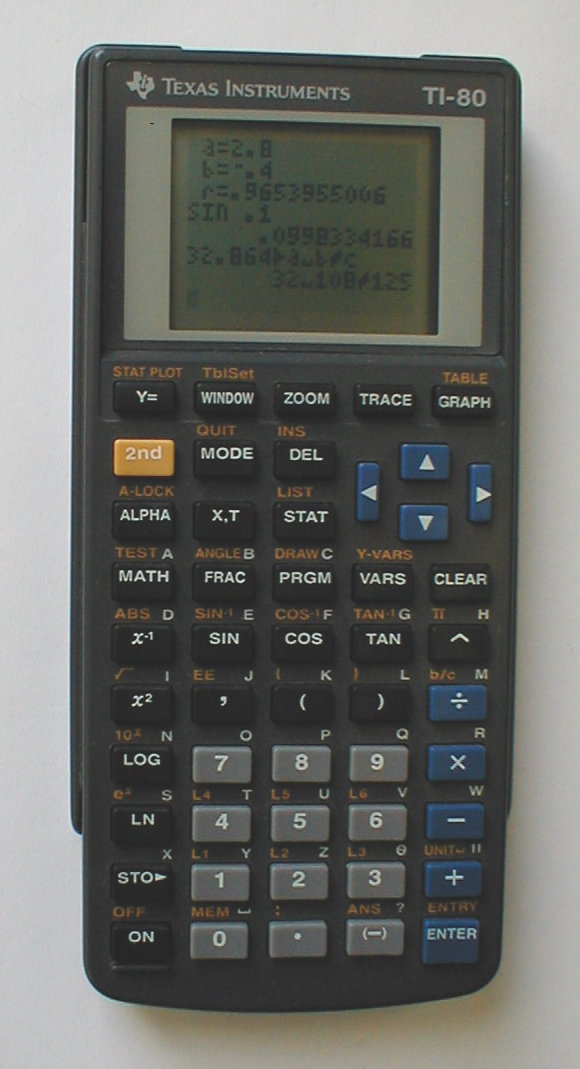
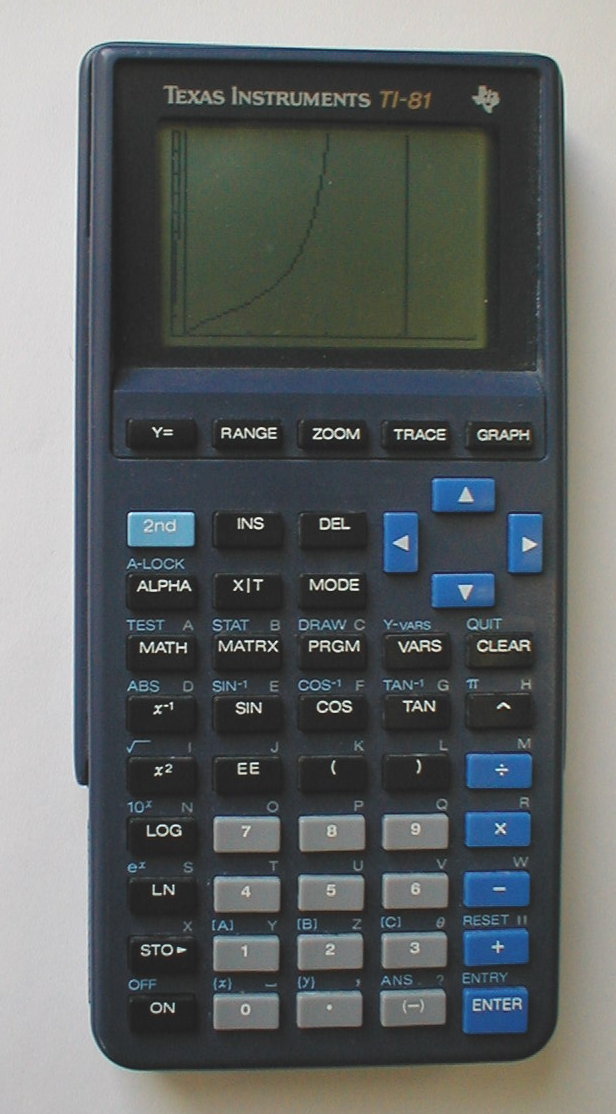
1. TI-80: The first middle-school graphing calculator.
2. TI-81: My (and TI's) first graphing calculator (01991).
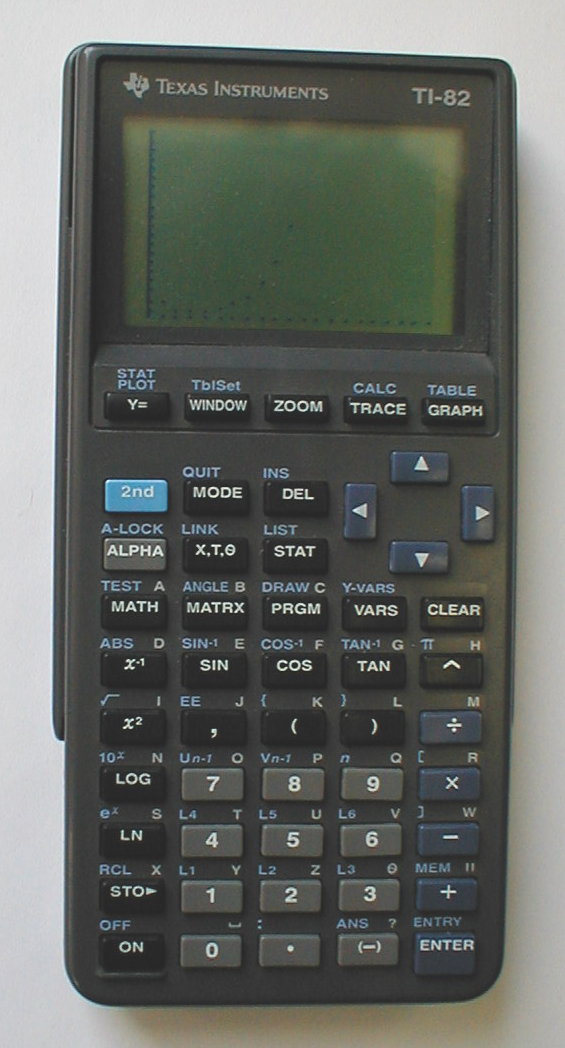
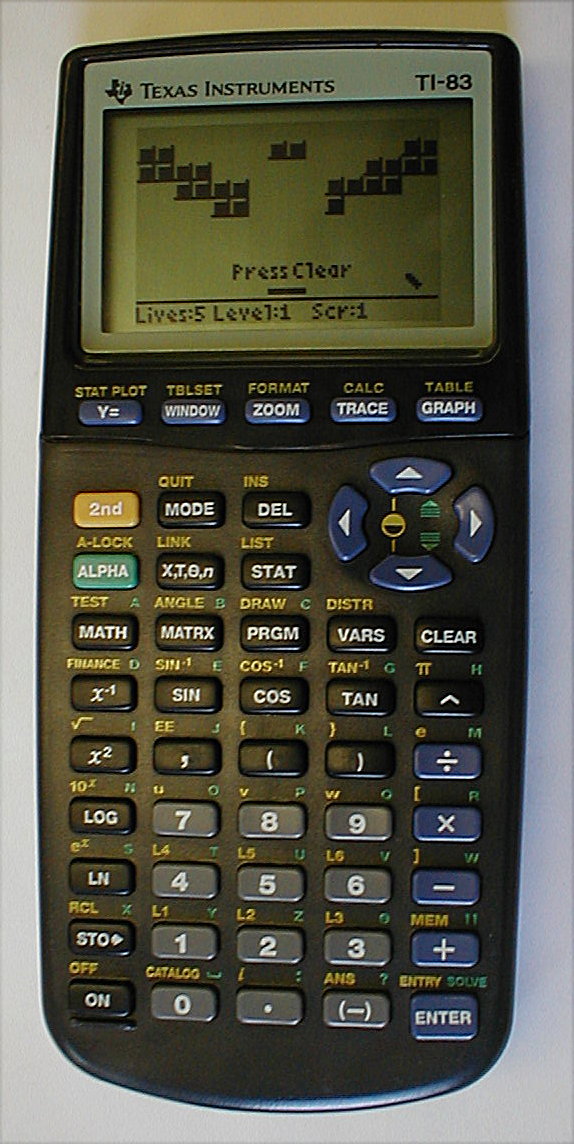


1. TI-80: The first middle-school graphing calculator.
2. TI-81: My (and TI's) first graphing calculator (01991).


1. TI-82: Graphing calculator enhanced for statistics use.
2. TI-83: Updated TI-82. This one is playing a game called
Turbo Breakout (not very well, though).
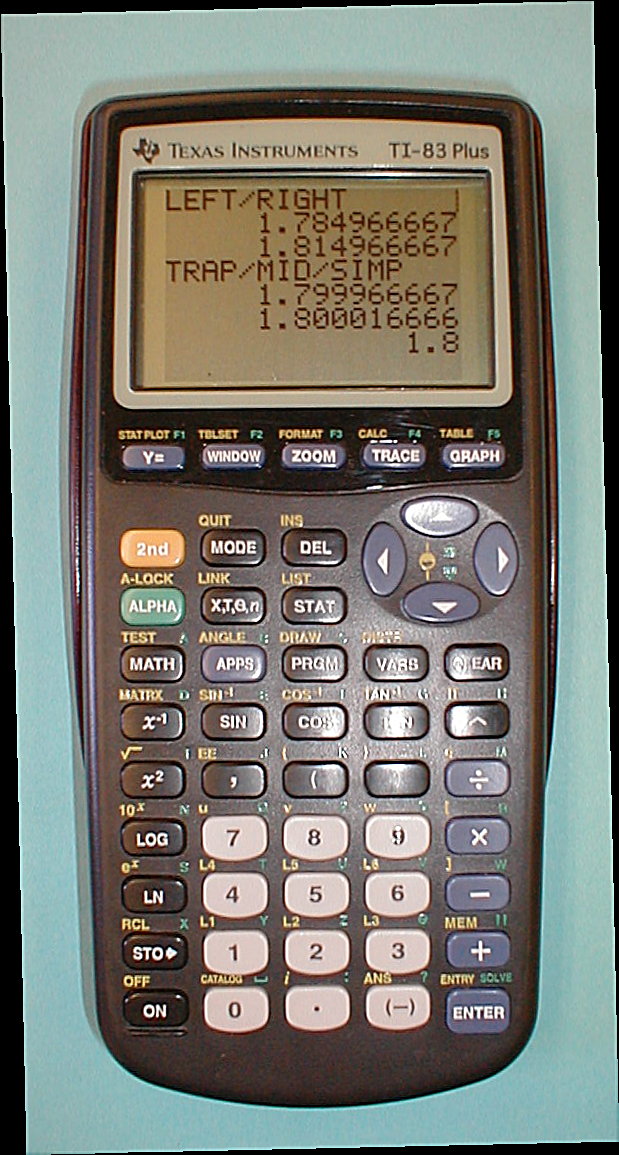
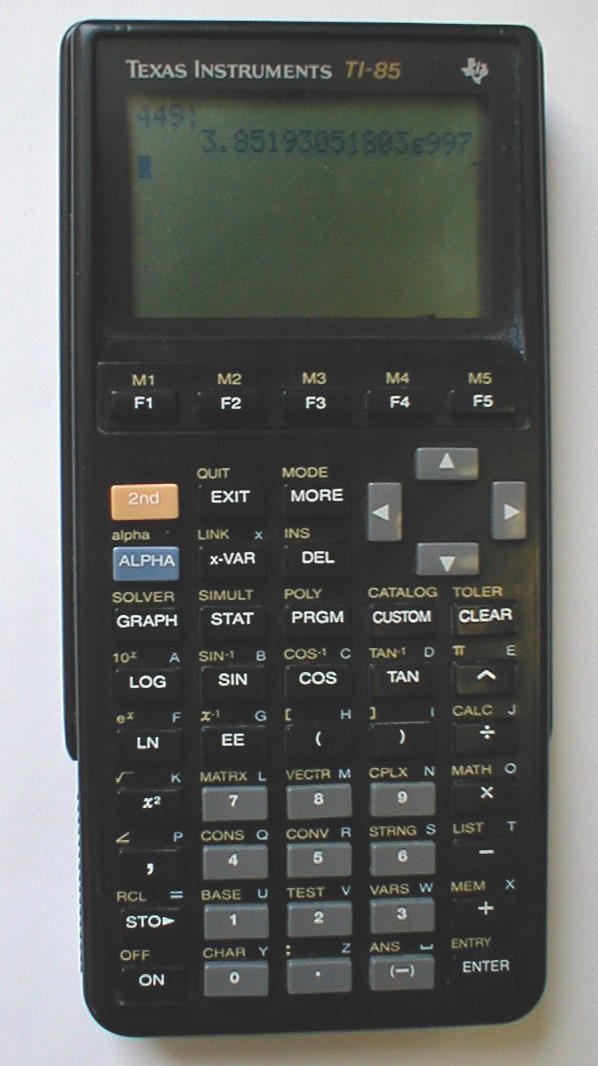
1. TI-83 Plus: Newest version of the TI-83. Upgradeable with Flash technology. Mine has a nifty red (of course)
cover and is showing here the results of a numerical integration program.
2. TI-85: My second graphing calculator (01993) and still my
primary working and teaching machine. A close reading of the screen will reveal
this this calculator breaks the 69! barrier by accepting numbers up to 101000.
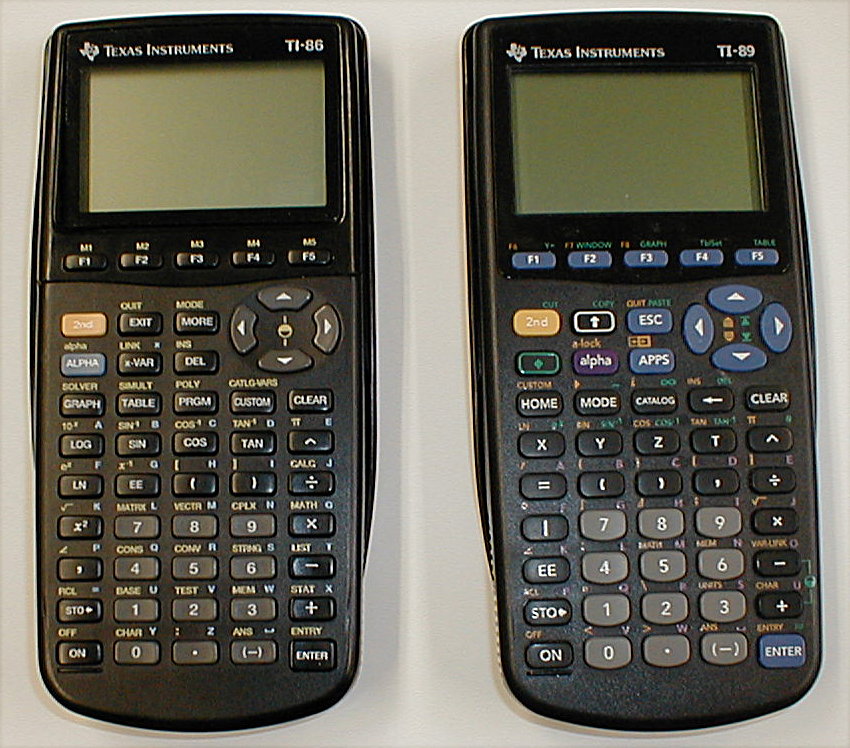
1. TI-86: Updated version of the TI-85.
2. TI-89: The functionality of the TI-92 in the TI-8x platform.
This particular one is also overhead-projection compatible for easy classroom
use.
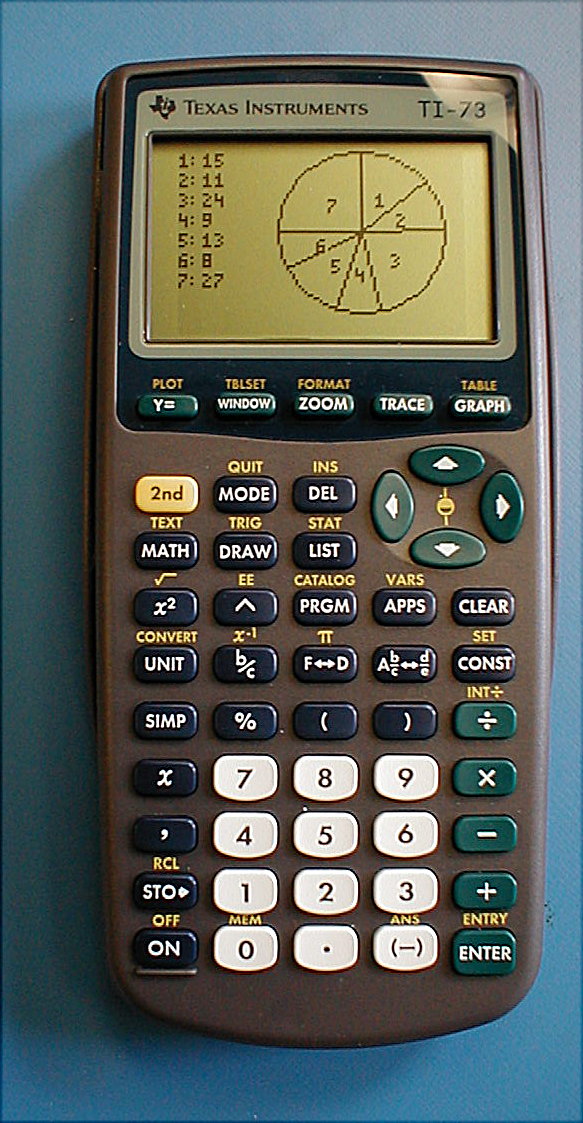
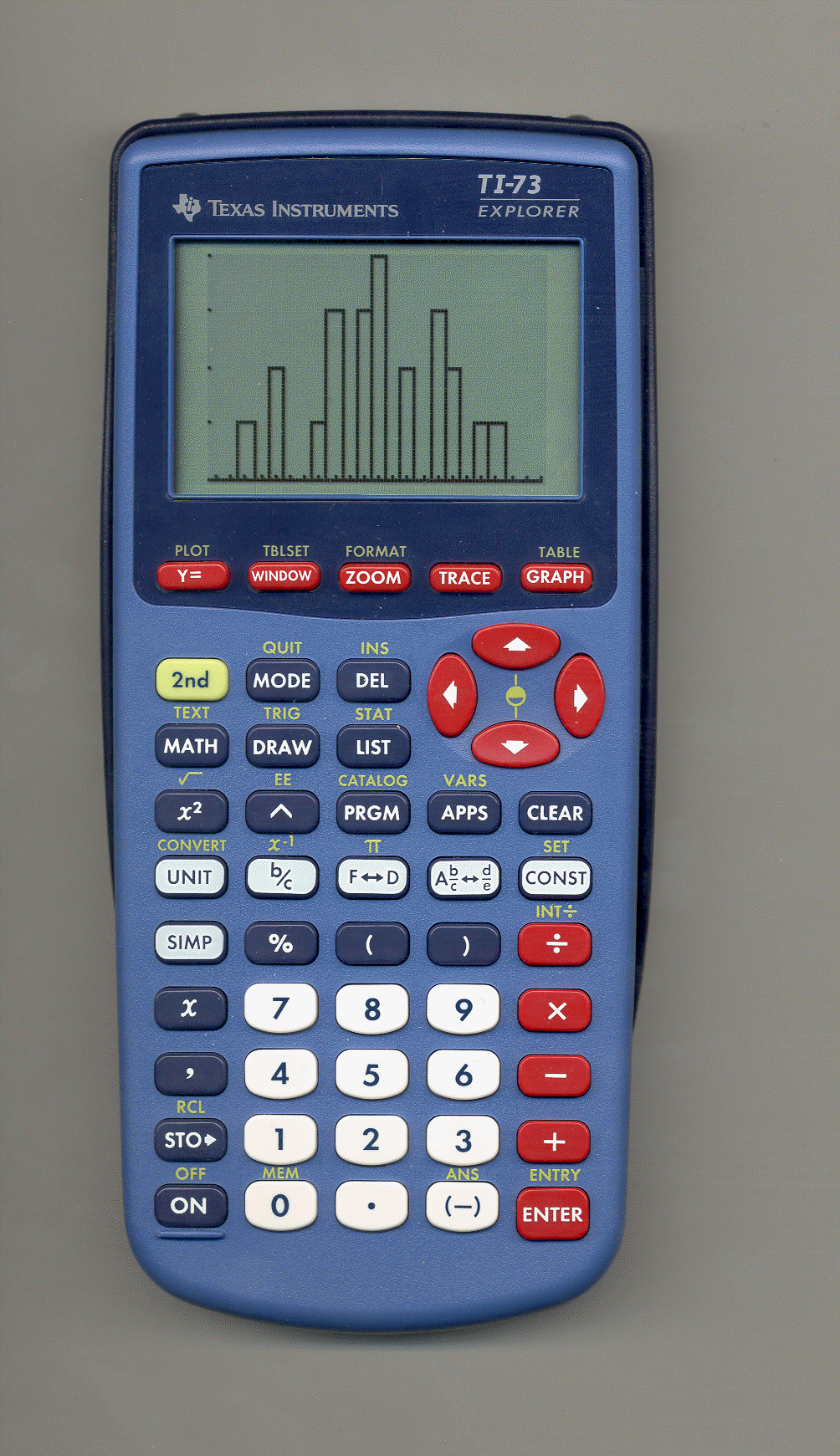
1. TI-73: TI's second middle grades graphing calculator. This
has some nice statistical capacities as well as full fraction operations.
2. TI-73 Explorer: In 02003, the TI-73 was re-released in a merger with
TI's popular line of Explorer calculators for classroom use.
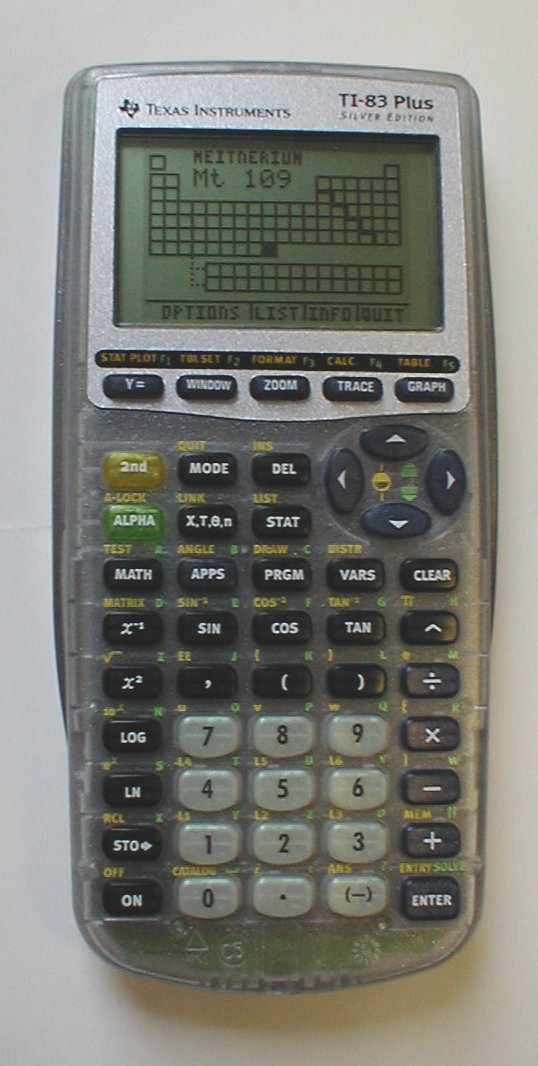

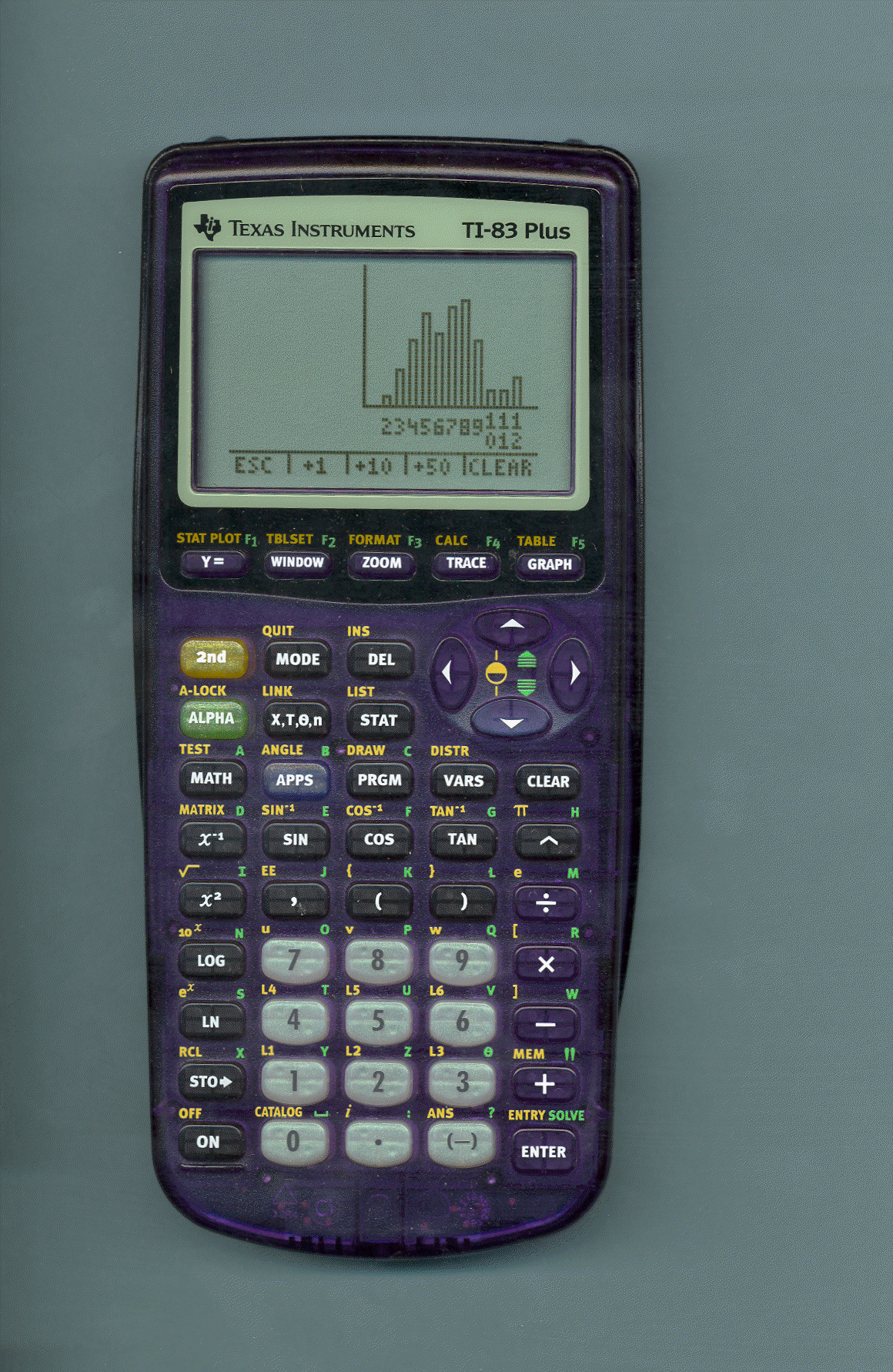
1.
TI-83+ Silver
Edition: Introduced in 02001, this calculator is an enhanced TI-83+ with
more memory and a faster processor.
2. TI-83+ Silver Edition Overhead
projector model: This calculator is equipped for overhead projection and
combines the power of the Silver Edition with the keyboard of the original
TI-83+.
3. TI-83+ Ultra Violet edition: This variation on the TI-83+ was sold in
America through Target department stores in 02002. A "Cool Blue" version
had been released through Target in 02001. Functionally, this calculator
is the same as a standard TI-83+.
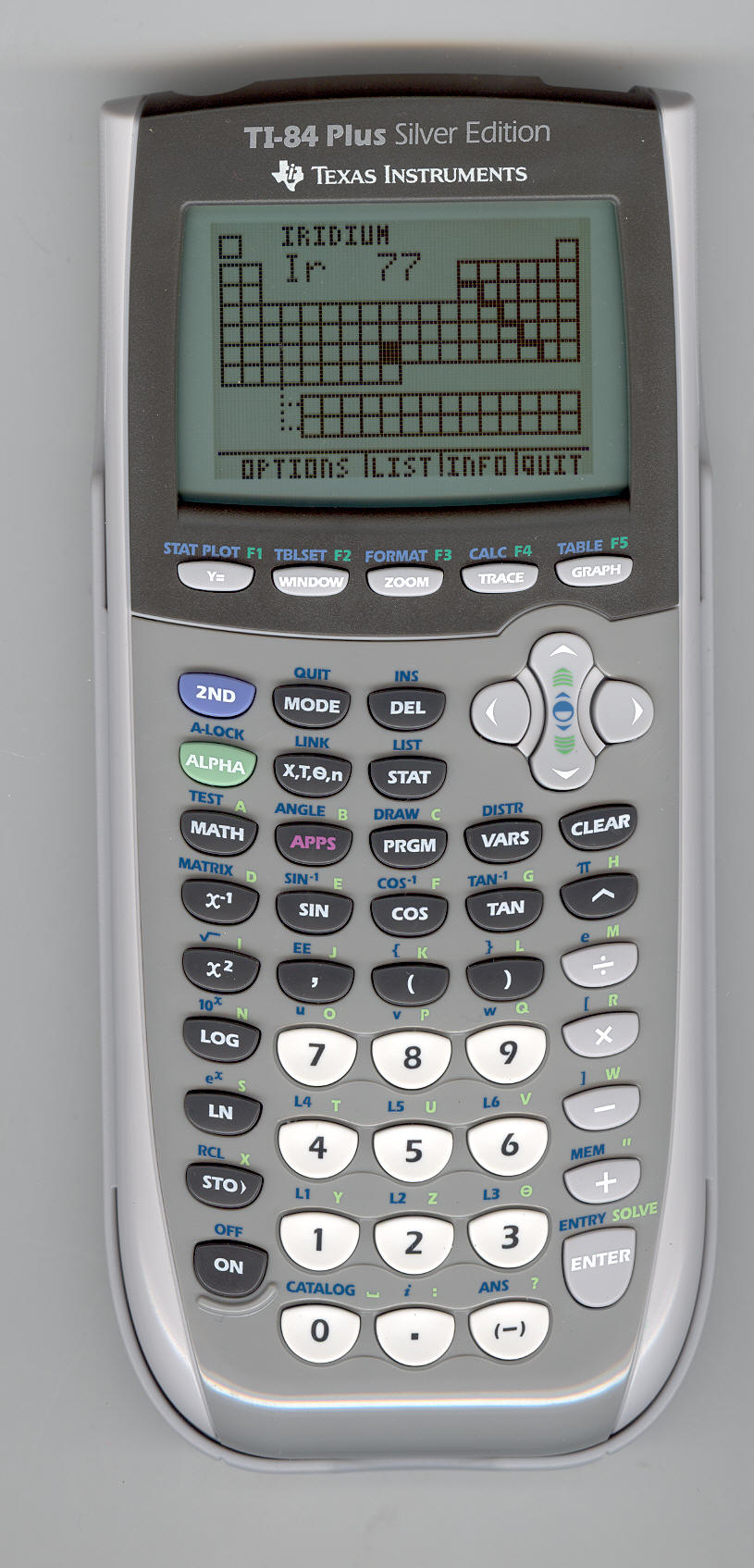
TI-84+ Silver Edition: In 02004, TI introduced three new graphing calculators, basically ramped-up versions of earlier models. This one is an enhanced TI-83+ SE with more memory for applications and a faster processor--also a new shape.
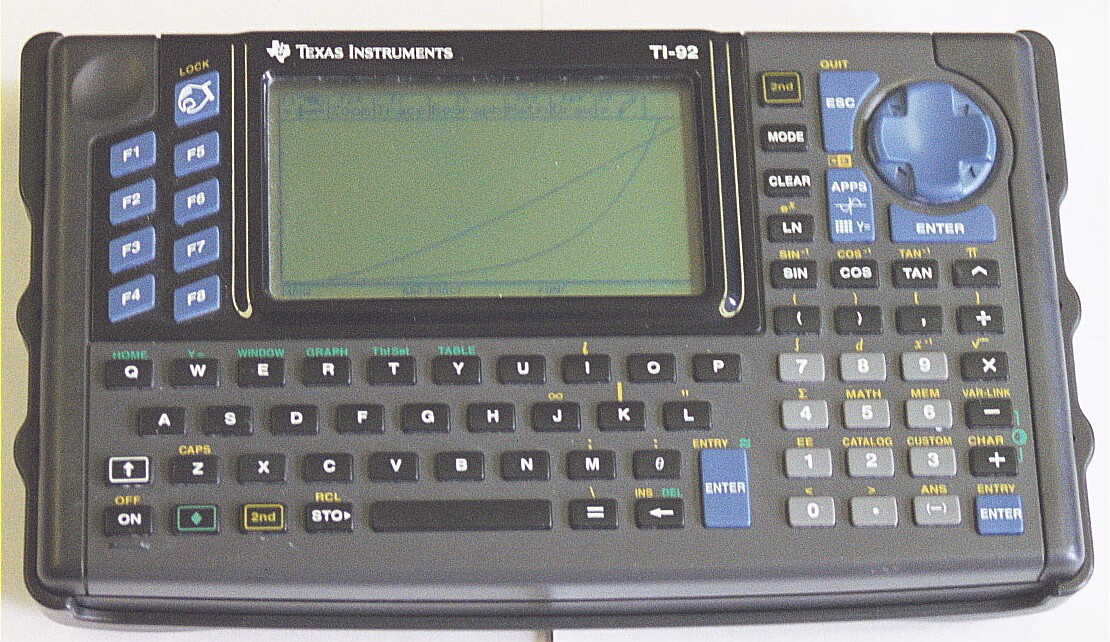
TI-92: The first TI calculator with a computer algebra system and 3-D graphing capacities. I use this one with an overhead projection panel in the classroom.
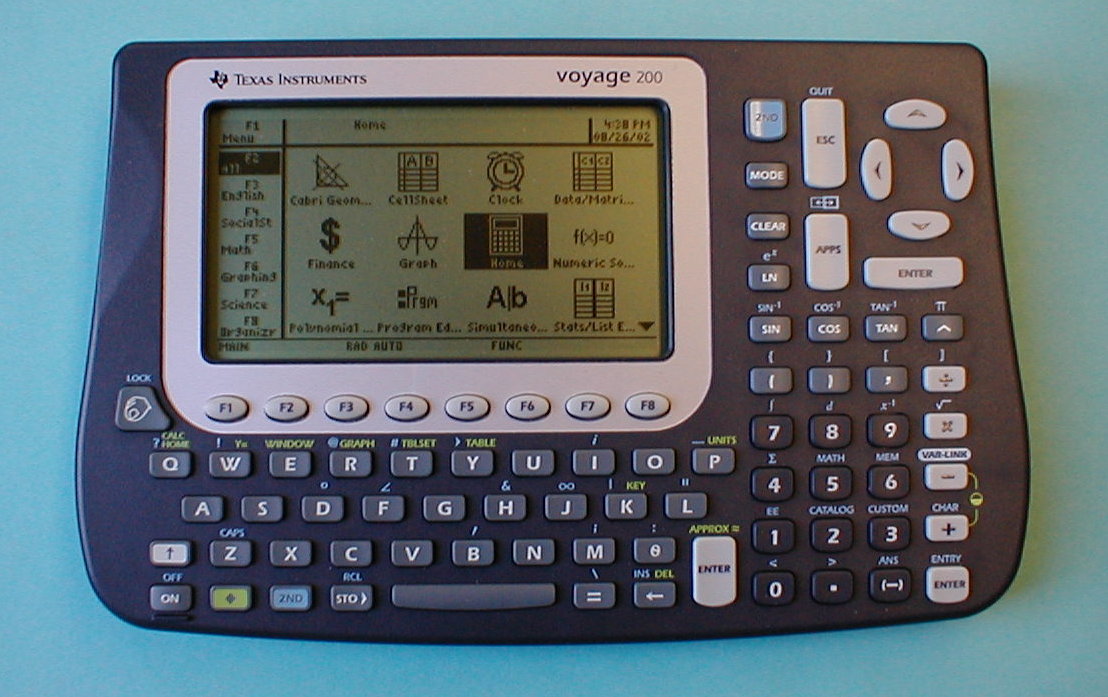
Voyage 200: The latest (02002) product from TI, this Personal Learning Tool adds a graphical interface, clock, and several other new capacities to the TI-92+, while refining and streamlining the shape somewhat.

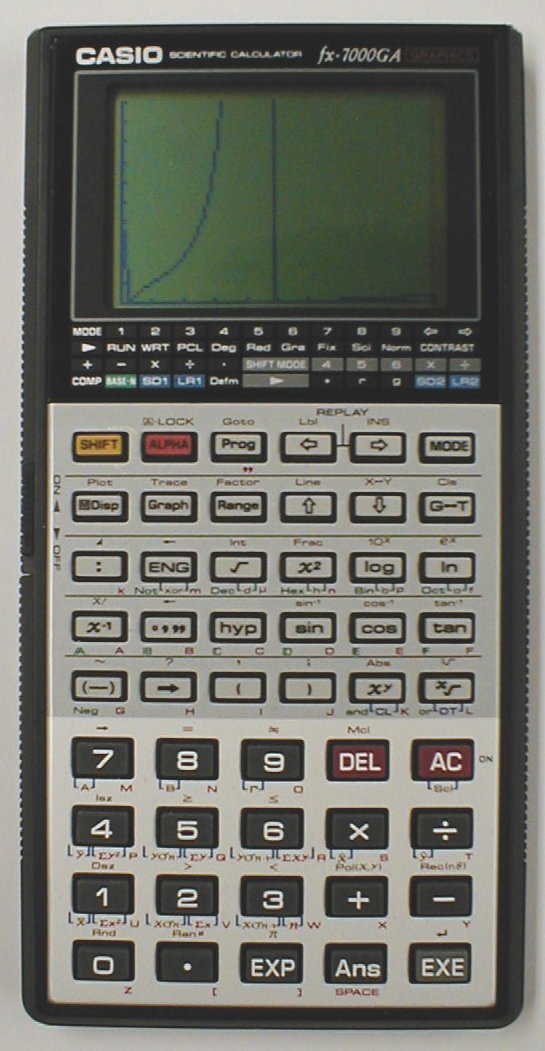
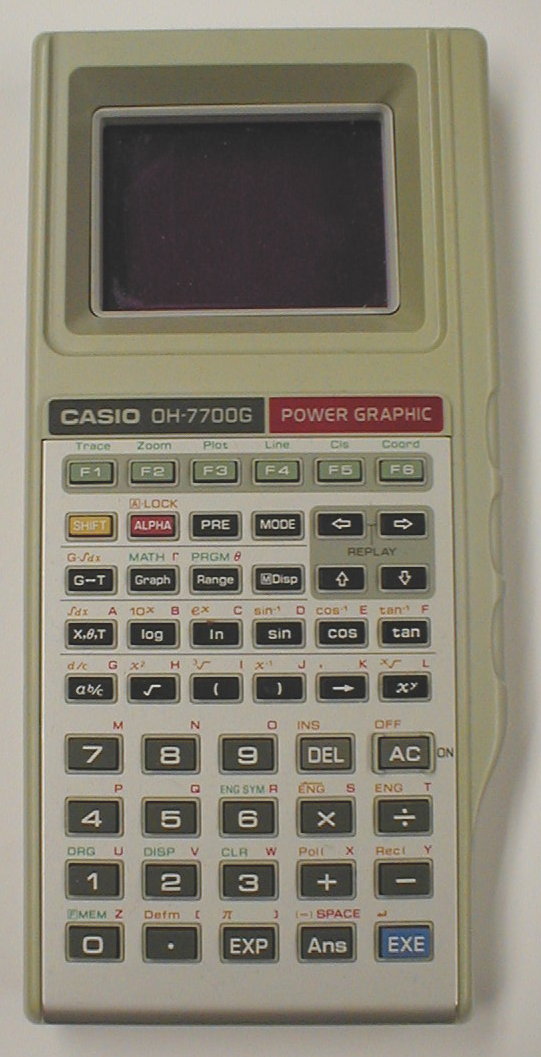
1. Casio fx-7000G: The first graphing calculator. This one is
showing my favorite function,
f(x) = etan(ln x), on the interval
(0,100).
2. Casio fx-7000GA: Second generation Casio, showing f(x) = etan(ln
x) on the interval (0,10).
3. Casio OH-7700G: A graphing calculator designed for overhead
projection. On permanent loan from the
Albion College Department of
Mathematics.
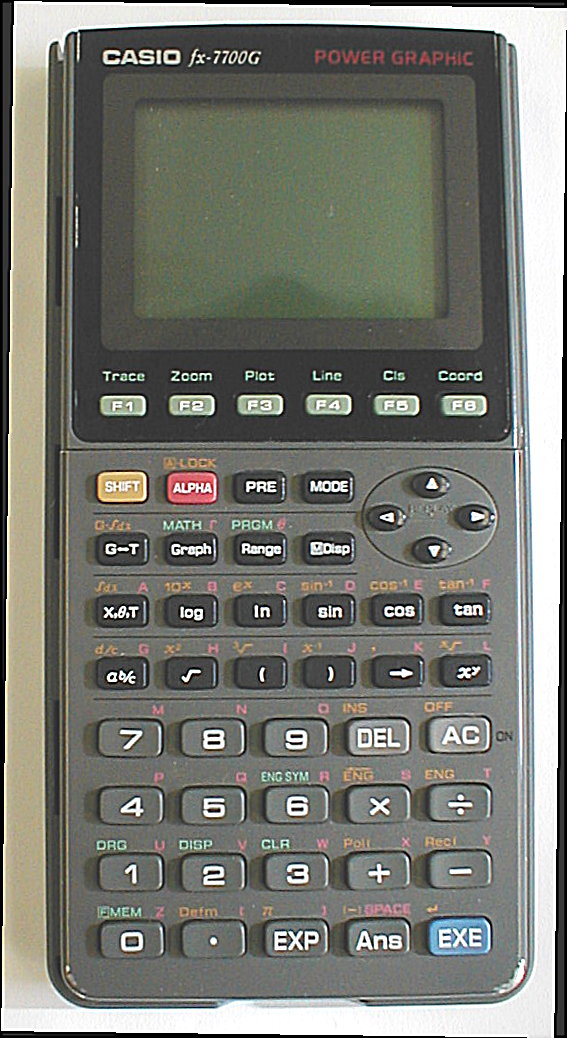
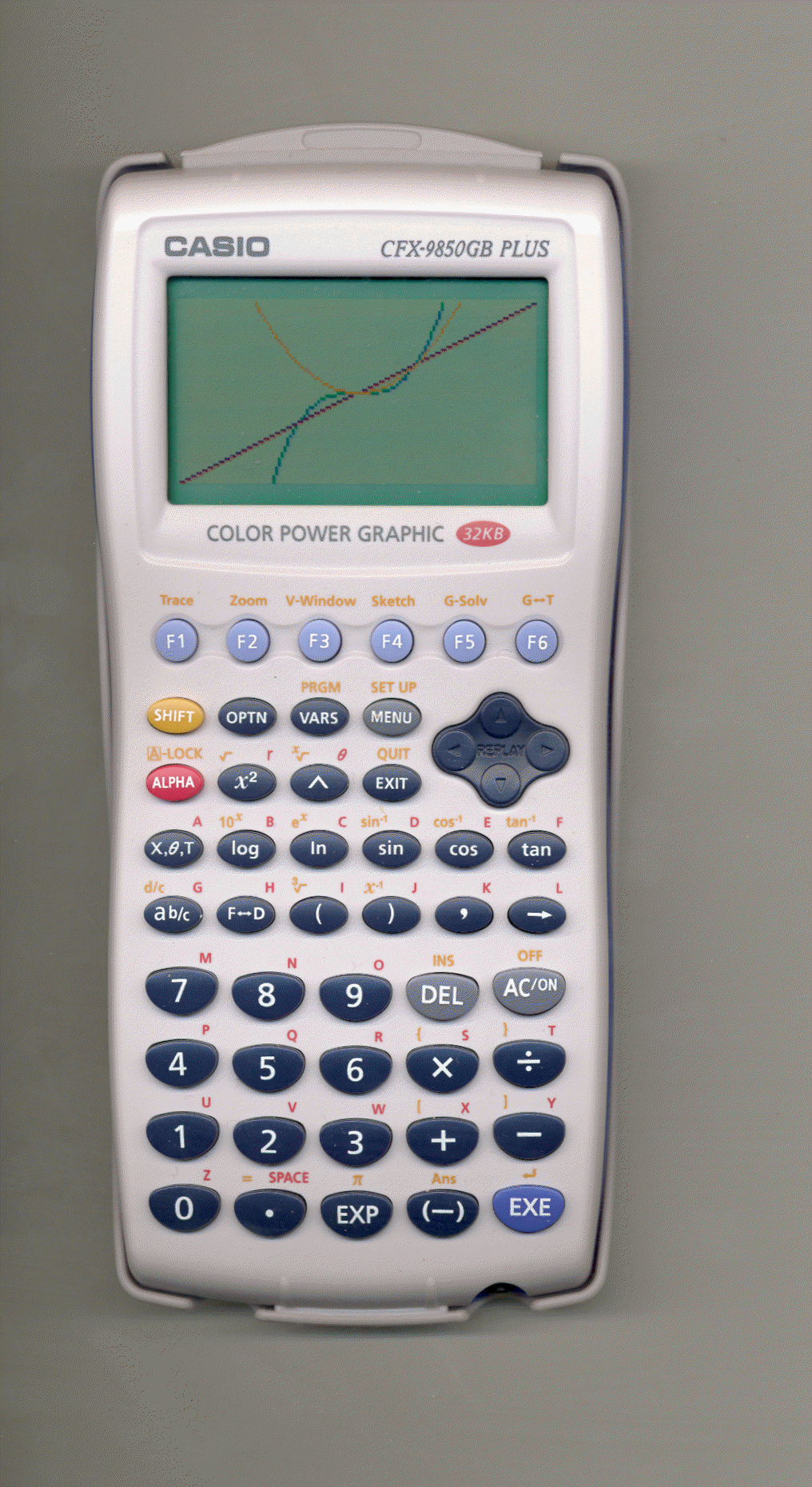
1. fx-7700G:
The line is extended further, including a more natural set of cursor keys.
2. CFX-9850G Plus: A color graphing calculator (one arena where Casio has
taken a lead and not been challenged), this one can display results in blue,
orange, and green, as is seen here with graphs of f(x) = x, g(x) = x2,
and h(x) = x3.
Not yet pictured: Casio Color Power Graphic CFX-9850G, TI-83+ Cool Blue Edition, TI-89 Titanium.
Last revision: 7 March 02005.
This page is Y10K compliant.